In the current era of 4.0, people have access to a lot of information, but not everyone knows how to select information. There has been a lot of information about misleading nutrition that causes readings to follow and adversely affect health. Or simply word of mouth with stories from old times like eating bad fat or not skipping breakfast ... So top nutrition myths will help you know what people are making nutrition ideas.
1 Protein is not good for bones and kidneys
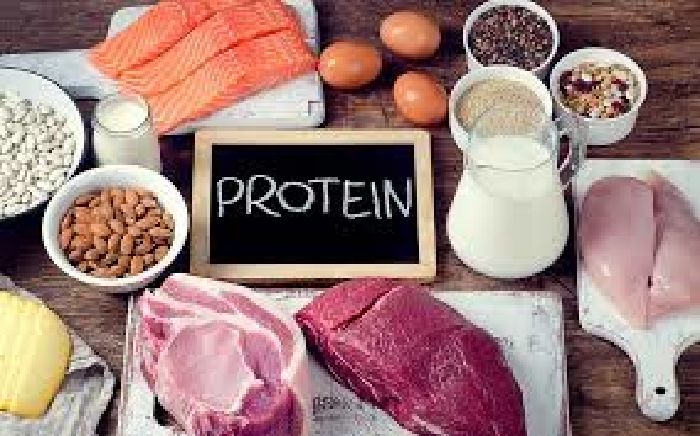
High protein foods
People often blame carbs and fats for various health problems. But even protein is not spared. The media often claim that protein is harmful to bones and kidneys.
Please handle both statements above.
A higher protein diet has shown a higher amount of calcium in the urine. There are two reasons given to explain this phenomenon.
The body draws its reserves of calcium (from bones) to deal with the level of acid generated from proteins. This suggests that high protein intake may lead to osteoporosis
Most studies on protein intake and calcium excretion have dairy products as a source of protein. So high levels of calcium in urine may be due to higher calcium intake (high intake, high intake). So just looking at calcium levels is not enough. Subsequent studies have shown that protein promotes calcium absorption, and a high protein diet will "promote bone growth and slow the process of osteoporosis, while a low protein diet will lead to a risk." higher hip fracture ”. Current evidence suggests that protein is actually harmless or even protects bones.
Other studies have determined that a high protein diet increases glomerular filtration rate (GFR), an indicator of kidney waste filtration. It has been argued that an increase in GFR is a sign of kidney stress, but subsequent research has shown that kidney damage is not caused by a high protein diet.
In summary, randomized trials did not show the effect of protein on the bones or kidneys of healthy adults.
Fact: Protein, even in large amounts, does not harm bones or kidneys (unless you have a medical condition).
2 Carbs are not good for you

Carb-rich foods
Myth 2: Carbs are not good for you
For decades, fat was viewed as an enemy; Today, carbs become new victims. A bad reputation for carbs and insulin is becoming more common.
Many believe that the GI (glycemic index) and insulin index rank foods according to their "unhealthy" levels. However, research on diets with low GI indicates neutral or insignificant results, even for diabetics. Moreover, a low GI diet does not show superiority compared to other diets.
Similarly, the carbohydrate-insulin model of obesity, which suggests that obesity is caused by carbs and the insulin reaction that carbs produce, has no scientific evidence. In 2017, a meta-analysis of 32 controlled studies was published. In each study, meals were provided, to ensure that each diet would have enough calories and nutrients for each person (in each study, the calories and protein levels were equal but The amount of fat and carbs is different.) So what is the result? These studies help us understand the weight loss mechanism. A low-fat diet will result in greater fat loss (average of 16 grams a day) and greater energy consumption (average of 26 calories per day). Thus, a low-fat diet will have the advantage of reducing fat, although this advantage is still not physiologically significant.
These results are consistent with long-term studies on low-carb or keto diets. The meta-analyzes showed no significant difference compared to the high-carb diet.
Cutting back on carbs (especially processed carbs) can be beneficial, if that helps you eat healthier. But if cutting carbs makes your diet worse, or making you feel worse, or you can't follow it, then you should consider other options. If you want to lose weight, it's important not to replace fat with carbs or carbs with fat, but the daily calorie deficit.
Fact: Carbohydrates are not inherently harmful. As long as you don't eat too much.
3 Egg yolks are not good for you
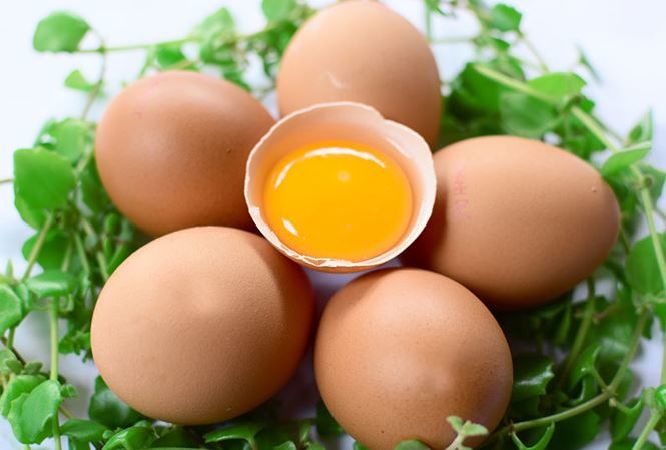
Egg
One thing that the media is so good at, is that it keeps you away from completely healthy foods.
Eggs have a bad reputation due to its yolk, which is rich in nutrients, including lots of cholesterol. In fact, for most people, eating cholesterol-rich foods is not closely linked to an increase in blood cholesterol levels.
In clinical trials, no link was found between eggs and cardiovascular disease, except in people with pre-existing conditions such as diabetes or hyperglycemia.
Fact: Eggs are a good source of protein, fats, and other nutrients. Its association with high cholesterol and cardiovascular disease has been greatly exaggerated.
4 Salt is not good for you

Salt
Some misunderstandings stem from the truth. Studies have found a link between too much salt and high blood pressure, kidney damage, and an increased risk of cognitive decline.
Salt (sodium) is basically an important mineral for health. The problem is when you eat too much sodium and too little potassium (potassium).
Another problem is which food sources the salt comes from. The average North American consumes a large amount of processed food - meaning people who consume a lot of salt tend to consume unhealthy foods. Therefore, it is difficult to clearly distinguish the effects of salt from the effects of the entire diet. Except for people with salt-sensitive hypertension, the evidence supporting low sodium intake is not conclusive. To date, both high and very low salt levels have been linked to cardiovascular disease.
The Truth: Reducing salt is important for people with salt-sensitive hypertension. Eating too much salt will cause harm. But eating too little salt did not show a consistent benefit in clinical trials. Most people will benefit more from eating natural foods than to control their salt intake.
5 Fresh foods contain more nutrients than frozen foods (fruits and vegetables)
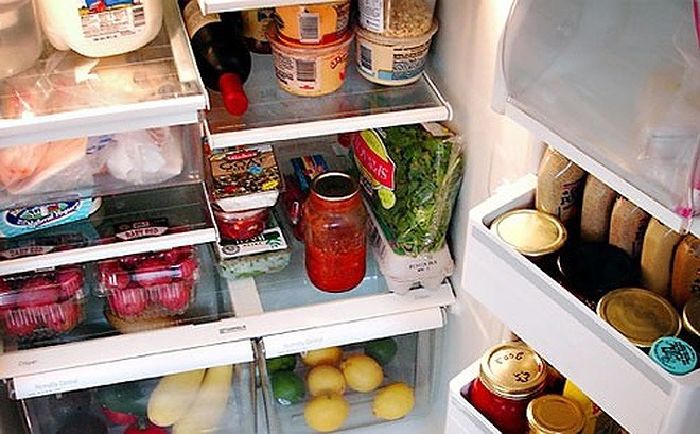
Food kept in the refrigerator
Fresh produce is more appealing to many. It sounds better than "canned" or "frozen" stuff. But "fresh" food doesn't mean it's more nutritious.
Fresh produce is defined as something that "ripens after harvest" (if it ripens during transport) or is "ripened" (harvested and sold when ripe: for example, at an agricultural market, or at a fruit stall on the roadside of farmers).
Frozen produce is usually ripe as a whole before being treated to a minimum before freezing. Most fruits and vegetables will be blanched in hot water for a few minutes before freezing, with the aim of inactivating the enzyme that can cause adverse changes in color, taste and nutritional value.
There are several differences between fresh and frozen foods and certain nutrients found in certain fruits and vegetables. But overall, their nutritional value is similar.
Fact: There may be some nutritional differences between fresh and frozen foods, the overall difference is small. Choose according to your taste, budget and lifestyle.
6 You should eat
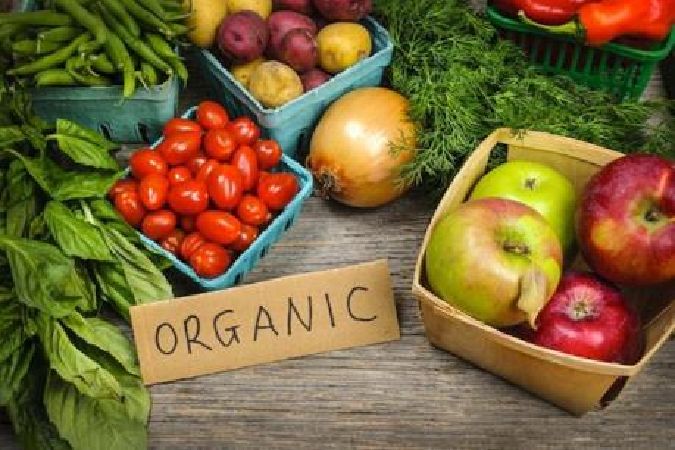
Fresh food
This thinking is the result of a series of misconceptions. First of all, people rarely agree on what it means to "eat clean". For some, it means avoiding certain items for religious or moral reasons. For others, it means avoiding much processed goods. For the rest, it means eating only organic food. One thing in common is that all focus on exclusion: they define "eating clean" by what you can't eat.
Veganism can be considered a prototype clean diet, as it avoids all animal products for ethical and health reasons. But although vegetarians are often healthier, this may be for reasons unrelated to food. For example, people who follow a vegetarian diet often exercise or do not drink alcohol or smoke.
Compared to people who follow a varied omnivores, vegan (and to a lesser extent, vegetarian) are more likely to be deficient in certain nutrients, such as L-carnitine or vitamin B12. However, these can all be supplemented with supplements - today, there are plant-based products for EPA, DHA, and vitamin D3.
But animal products are not the only "unclean" things. You do not simply have to "eat vegetables". What you eat must also be organic. Because people think "natural" is good and "synthetic" is bad. However, so far, several studies on the health effects of organic foods have not found a consistent relationship between organic food, plants or animals and health.
Observational studies have not found a link between eating organic and the risk of eczema, wheezing, sensitivity, or cancer in general. An observational study has shown that an organic diet can reduce the risk of developing non-Hodgkin's lymphoma in women. Another study found that organic dairy products may reduce the risk of eczyma in young children, compared to conventional dairy products.
None of the above proves that there is no link between organic food and health, but the organic-vs-conventional debate is very complicated, and can vary depending on the type of food. analytics and those who consume that food.
One misunderstanding is that there are no synthetic chemicals used to grow organic food, while the National List of Allowed and Prohibited Substances lists some of the banned and banned chemicals. Exception. Another misunderstanding is that no pesticides are used on organic crops, even though natural insecticides do exist, and are also used with organic crops. But it is not always good for consumers as well as the environment.
Pesticide data in food is a concern, although it should be noted that the US Department of Agriculture's (USDA) Pesticide Data Program (USDA) has consistently found that most The product does not contain any residue or permitted residue limits set by the Environmental Protection Agency (EPA).
Although the USDA does not currently check for pesticide residues commonly used on organic foods, they do check for unapproved pesticide residues and restricted drugs. Not surprisingly, most pesticide residues are found in non-organic foods, but once found, the residues are similar in both organic and non-organic foods.
There is also some evidence that even very low doses of pesticides can have a physiological effect. These effects, whether beneficial, neutral or harmful, and whether these pesticides come from organic or conventional sources, have not been well studied. So consumers have to do? The practical solution is quite simple: washing, peeling and cooking can reduce the amount of pesticide on a product, whether or not the product is organic.
Is our food clean enough? Not necessarily. Some "clean eating guru" recommend that you only eat raw food, so that the nutrients are not "unnatural". Such absolute rules are a mistake. Raw milk may contain harmful bacteria. Raw eggs contain avidin, a protein that can bind to biotin and therefore lead to biotin deficiency if eaten raw eggs regularly. Cooking can reduce vegetable nitrate levels (not good) but also increase their oxalate (good) content. So you cannot rate something together.
It is easy to see that some people are so obsessed with "eating clean" that they have orthorexia nervosa, a disorder that makes you obsessive about healthy eating. This doesn't mean all foods are the same, and you should definitely choose whole foods over processed ones - most processed foods are often low in nutrition, high in calories, and prone to overeating - and you don't need to worry that eating non-organic things will shorten your life cycle (but too much stress can be).
Fact: "Eat clean" is a difficult concept to define. So stick to the basics. Choose whole foods (but don't worry about eating some processed food), eat organic if you want and can afford it, wash all sorts of vegetables, and avoid being overly stressed about eating drink, because stress can shorten your life cycle.
7 To reduce fat, stand eating before going to bed

Eat before bed
Some studies show the advantage of reducing fat in people who eat early, and even in those who eat late. In general, people who eat early often have more advantages. However the test cannot reflect real life. In real life, there are two reasons why eating late at night can hinder fat loss, and both are linked to daily calorie gain.
The first reason is simple: If instead of just going to bed, we eat a snack, then the calories from the snack will be redundant.
The second reason is that, when we are tired, we will eat more, usually with snacks or sweets. So if we stay up all night to work or study - or even just to watch TV - we will often eat more, not because of hunger, but to combat sleepiness.
Fact: Eating late does not make you fat, unless it makes you eat more. After a long day you will also find it hard to resist junk food.
8 Creatine will increase testosterone but will cause hair loss and kidney damage
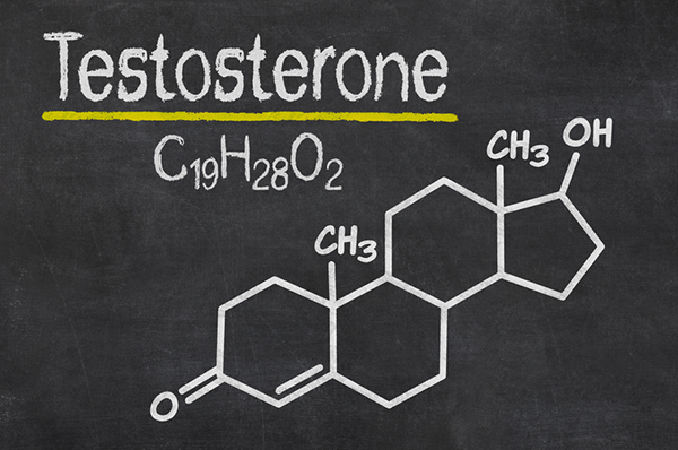
Testosterone
Increased Testosterone:
Creatine helps build muscle by helping your cells easily regenerate adenosine triphosphate (ATP), a source of energy for the body. To this day, there is no conclusive evidence that creatine can increase testosterone levels.
Three randomized controlled trials (RCTs), involving a total of 60 men, saw small increases in testosterone or dihydrotestosterone (DHT) with creatine supplementation. However, ten other RCT trials, with a total of 218 participants, reported no effect of a 3 - 25 g dose of creatine on testosterone levels.
Those who want to optimize their testosterone levels should focus on more proven ways, such as sleep, exercise, calories, vitamin D, magnesium and zinc. Suboptimal intake of any of these can lower testosterone production.
Hair loss:
The thought that creatine may increase hair loss stems from a single RCT test where participants (20 healthy young male rugby players) saw a small but statistically significant increase in DHT after when taking creatine for 21 days. When DHT, a potent metabolite of testosterone, binds to the DHT receptors in hair follicles of the scalp, those follicles can shrink and stop hair production.
So far, this RCT is the only test that has tested the effects of creatine on DHT. However, some RCT tests have examined the effects of creatine on testosterone. Of the twelve subsequent RCTs, two trials showed significant increases in testosterone. But the remaining ten trials found no effect. Of those twelve RCTs, five also tested the effects of creatine on free testosterone, the form converted to DHT, and all showed no significant increase.
Creatine may not significantly increase free testosterone but significantly increase DHT (that is, a small increase in free testosterone, which can be converted to DHT, can lead to a much larger increase in total DHT). . So, theoretically, creatine may have some effect on hair loss, but current evidence and motorized data suggest it is highly unlikely.
Kidney damage:
Blood creatinine levels (a byproduct of energy production) are used as an indicator of kidney function, but high levels from creatine supplementation are not a sign that your kidneys are working poorly.
No adverse effects on renal function were found in the following cases:
• People with healthy kidneys use up to 10 grams of creatine per day. Short and long term trials have numerous and consistent results.
• People with healthy kidneys take more than 10 grams of creatine per day. However, long-term trials are few, so caution is needed.
• People with suboptimal renal function take up to 5 grams of creatine per day. However, trials in this population are scarce, so caution is needed.
If you plan to check your creatinine level, stop taking creatine at least 3 weeks before your blood test to avoid false positives.
Fact: Of all the supplements on the market, creatine is one of the most widely researched. Most of the evidence suggests that this supplement is safe for long-term use and is often not likely to harm your kidneys, cause hair loss or increase your testosterone.
9 Red meat is not good for you
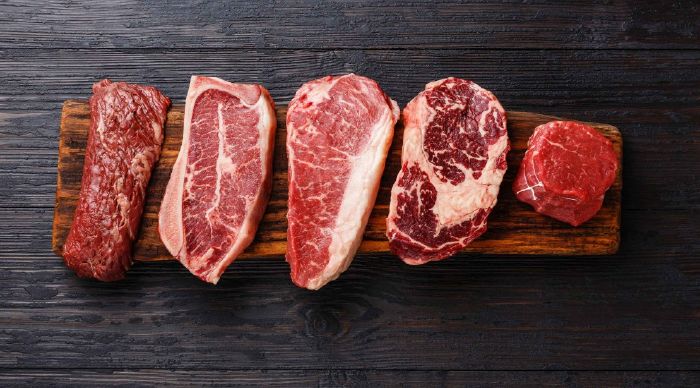
Red meat
Popular refrain: red meat causes cancer.
The absolute statement as above is why we have so many misunderstandings about nutrition. Cancer is especially hard to discuss in an absolute way. After all, almost everything we eat is likely to be involved in cancer growth. However, red meat is considered a major suspect.
Certain compounds - such as polyaromatic hydrocarbons (PAHs), found in smoked meats - have the potential to damage the genome, a first step in cancer. Current evidence suggests that processed red meat, especially those that burn during cooking, may pose a higher cancer risk for people with poor diet and lifestyles. strong. But if you consume red meat in moderation, exercise regularly, eat vegetables and fruits, get enough fiber, do not smoke, and only drink alcohol in moderation, then the effect of red meat on risk Cancer is not of concern
Fact: The fear of red meat causing cancer has been exaggerated. Choosing a healthy lifestyle (keeping a moderate weight, exercising, and not smoking) is more important than controlling your red meat intake. If you still want to cut out red meat, start with salted, smoked, or processed meats.
10 Fats are not good for you
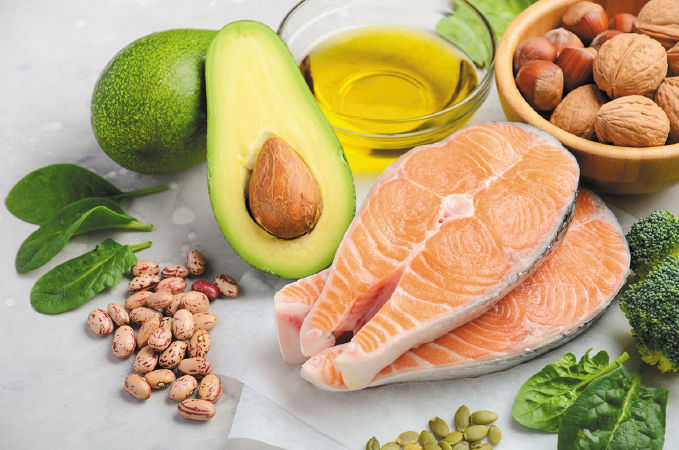
Foods high in fat
Eat fat, increase fat? For decades, the traditional way to lose weight was to eat a low-fat diet, but current evidence suggests that, with the same caloric deficit and protein intake, a low-fat and low-carb diet are similar to the weight loss results.
Moreover, while a low-fat diet is not necessarily bad. Cutting out all types of fat from the diet is quite dangerous, because your body needs to consume a minimum of omega-3 and omega-6 fatty acids. As for the idea that saturated fat is the main cause of heart disease, that's just another misunderstanding.
After all, trans fat is the only fat that has been shown to be harmful to health - small amounts will not kill you, but it will be harmful in the long run.
Fact: If you are in a caloric surplus, a low-fat diet will not make you lose weight. You need omega-3 and omega-6 fatty acids. Saturated fat will not cause you a heart attack (but too much trans fat will be possible).

